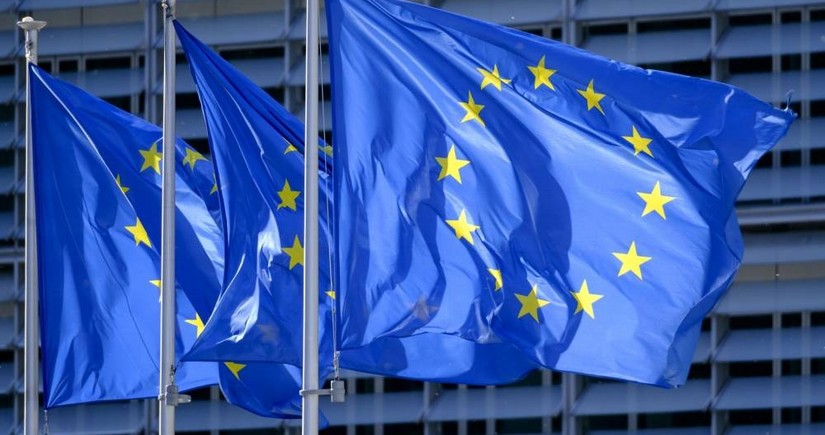EC to present EU military-industrial strategy with integration of Ukraine
- 04 March, 2024
- 14:17

Ukraine should become a full member of the EU’s defence industry support scheme, which would also help use the country’s expertise and bring Kyiv closer to membership, according to a European Commission draft proposal seen by Euractiv, Report informs.
One of the three goals of the European Defence Investment Programme (EDIP) proposal is the step “contributing to the recovery, reconstruction and modernisation of the Ukrainian defence technological and industrial base and progressive integration into the European, thereby contributing to mutual stability, security, peace, prosperity and sustainability.”
For this, Ukraine should be allowed to become a full member of any country-consortium to jointly procure military equipment with other EU member states, have access to EU funds, and VAT-exemption when for joint ownership, the draft text states, echoing what Commission President Ursula von der Leyen suggested in the autumn.
The EDIP regulation will be presented by the European Commission on Tuesday (5 March) alongside an over-arching political EU defence strategy.
The integration of Ukraine in the EU industry policy in the draft law text goes one step further than mentioning the idea in the political ‘Strategy’, where it could easily be forgotten.
Ukraine would, therefore, be given a special place in the Programme to support European joint procurement of weapons and bolster the bloc’s military-industrial complex benefiting from EU funds.
Earlier defence industrial programs adopted by EU lawmakers have never considered any third country as a rightful full participant in the schemes besides Norway.
Associating Ukraine with EDIP would be a major step in shaping the continent’s military-industrial complex, given Kyiv’s expertise in using defence equipment for two years and its accession process to the European Union.
As it needs large quantities of defence products, especially ammunition and drones, Kyiv has worked with EU member states’ companies to set up joint ventures, buy directly from the bloc’s industries, and develop large drone-manufacturing capacities. Two years of war also gave its army members expertise in testing and using modern weapons.
According to the draft regulation, “contributing to the recovery, reconstruction and modernisation of the Ukrainian defence technological and industrial base” is a way to “support[ing] defence readiness of the Union and its member states”.
Outside EU borders, the bloc’s industry faces challenges to speed up production while waiting for contracts after decades of under-investment following the Cold War.
“Faced with a high-intensity conflict, the Ukrainian defence and technological, industrial base had to shift to a war economy model,” the draft defence strategy states, and so “will emerge as one of the best engines of the economic recovery of the country at the end of the war and testbed of the defence industrial readiness”.
The cooperation of Ukraine’s industry with the European is a core aspect of the ‘security commitments’ the EU’s diplomatic service (EEAS) discussed offering Ukraine in an attempt to guarantee the bloc’s industry will increase its output to sustain the war efforts.
“Ukraine is and will increasingly be a crucial partner in the Union in the defence industrial sector, notably given its full accession process”, the unpublished text of the defence strategy states.
The draft text also foresees a specific budget for the Ukrainian military-industrial complex.
The document does not specify the overall financial envelope attached, although it is supposed to come with a budget of at least €1.5 billion, according to a European Commission official.
Ukraine would, however, have to abide by several rules to be considered an EU member state under the plan, the draft text specifies. It lists “a precondition” on the rule of law, which resembles that it has to follow on its path to accession.
Ukraine shall “continue to uphold and respect effective democratic mechanisms, including a multiparty parliamentary system and the rule of law, and to guarantee respect for human rights, including the rights of persons belonging to minorities, thereby contributing to mutual stability, security, peace and prosperity.”
The European Commission would also consider evaluating the “security context” to assess its continued support.
Integrating Ukrainian industry into the EU defence programme will likely raise questions from enlargement-sceptic members who may oppose giving the EU candidate country another head-start in the single market plus benefits from subsidies on sensitive national industries when its membership process and the war are set to be lengthy.
